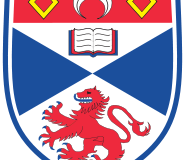The university of St. Andrews is on a hiring frenzy:
Applications are invited to join an interdisciplinary research programme directed by Professors Kevin Laland (School of Biology) and Andrew Whiten (School of Psychology and Neuroscience) at the University of St Andrews’ Centre for Social Learning and Cognitive Evolution. “Exploring the Evolutionary Origins of Culture Complexity, Creativity and Trust” is funded through a major grant from the John Templeton Foundation. Successful candidates will join a team of over 20 researchers working on the project, studying aspects of social learning, innovation and cultural evolution in monkeys, apes and human participants, employing a diversity of techniques including systematic observation, experiments and statistical modelling.
Two Lectureships: Lecturer in Behavioural and Evolutionary Biology (School of Biology);
Lecturer in Comparative, Evolutionary or Developmental Psychology (School of Psychology). Salary £37,382 – £45,941 per annum. Ref No: ML1133. Closing Date 7 April 2013.
Eight Postdoctoral Research Assistantships: £30,424 – £36,298 per annum. Ref No: SB1299.Closing Date 5 April 2013.
Up to ten PhD Scholarships. For further particulars and how to apply see http://lalandlab.st-andrews.ac.uk/opportunities.html.
Positions are for 33 months (salaried posts) or three years (PhD), commencing 1st September 2013 or as soon as possible thereafter. For the Lectureships & Postdoctoral Research Assistants only, we encourage applicants to apply online at www.vacancies.st-andrews.ac.uk/welcome.aspx, where further particulars of all posts can be viewed. However if you are unable to do this, please call +44 (0)1334462571 for an application pack.
Please quote the appropriate reference number on all correspondence.
The University is committed to equality of opportunity.
The University of St Andrews is a charity registered in Scotland (No SC013532).
The press release announcing the grant states:
The new project will use comparative studies of social learning among monkeys, apes and human children together with sophisticated statistical modeling and a diverse range of other methods to address a suite of such ‘Big Questions’ about the evolution of culture, a field in which St Andrews is a world leader. “When we talk of ‘culture’ in this project, we include everything that is learned from others, from our language to our technology and moral codes. Our cultural nature is arguably the most important characteristic that separates us from even our closest primate relatives”, says Professor Whiten. “Nevertheless, we can learn much about the evolutionary roots of our cultural capacities by studying the social traditions of monkeys and apes, and that will be an important part of this project”.
“Our unique human ability to make cultures evolve cumulatively, building on what others achieved before us, depends on two essential elements highlighted in the project title”, adds Professor Laland: “creativity, which produces new innovations, and trust, which guides which innovations are adopted and spread. We will be investigating how humans and other animals decide whom to trust as sources of cultural information and what other forms of cultural filtering are important”.
So it sounds very relevant for Language Evolution bods!

